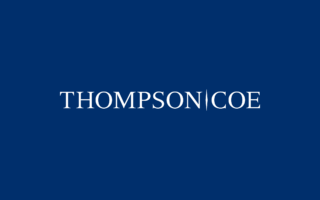USAA v. Menchaca: Second Time Around
By Rhonda J. Thompson • Apr 13, 2018
USAA Tex. Lloyds Co. v. Menchaca,No. 14-0721 (Tex. Apr. 13, 2018)
After granting USAA Texas Lloyds' motion for rehearing, the Supreme Court of Texas issued its decision today in a lengthy opinion. In rendering its April 13, 2018 opinion, the Court withdrew its prior April 7, 2017 opinion and judgment and substituted its April 13, 2018 opinion and judgment. Justice Boyd announced the Court's judgment and delivered the Court's opinion as to Parts I, II, and III.A, in which Chief Justice Hecht, Justice Green, Justice Guzman, Justice Lehrmann, Justice Devine, and Justice Brown joined, a plurality opinion as to Parts III.B and III.C, in which Chief Justice Hecht, Justice Lehrmann, and Justice Devine joined, and an opinion as to Parts III.D, III.E, III.F, and III.G, in which Justice Lehrmann and Justice Devine joined.
Background
After a Hurricane Ike claim, Menchaca sued USAA for breach of contract and for violation of the Texas Insurance Code. In trying the case to a jury, Question number 1 in the jury charge asked whether USAA breached the policy. The jury answered no. Question number 2 asked whether there was a statutory violation. The jury answered yes. Question number 3 asked the jury to determine damages based on Question numbers 1 or 2. The jury answered $11,350. Both parties moved for judgment in their favor based on the jury's verdict. USAA argued that because the jury failed to answer "yes" in Question number 1, Menchaca could not recover for bad faith or extra-contractual liability as a matter of law. Menchaca argued that Questions 2 and 3 did not require a "yes" answer to Question 1, and thus judgment in her favor was appropriate. The trial court disregarded Question 1 and entered judgment in favor on Menchaca. The Court of Appeals affirmed, and the Supreme Court of Texas granted USAA's petition for review.
Original Opinion
In the Supreme Court of Texas' first opinion rendered on April 7, 2017, the Court sought to eliminate confusion regarding its previous decisions addressing insured's claims against their insurance companies. USAA Tex. Lloyds Co. v. Menchaca, No. 14-0721, 2017 WL 1311752 (Tex. Apr,. 7, 2017). In attempting to clarify, the Court announced five rules addressing the relationship between contract claims under an insurance policy and tort claims under the Insurance Code. The Court held that the trial court erred by disregarding the jury's answer in Question 1, in which the jury failed to find that the insurer failed to comply with its obligations under the policy.
New Opinion
Now, in response to the parties' arguments at rehearing, the Court attempts to provide additional guidance and address the procedural effects of its prior holdings. In rendering its substituted opinion, the Court unanimously reaffirmed the legal principles and rules it previously announced in its first opinion, including reaffirming the five rules addressing the relationship between contract claims under an insurance policy and tort claims under the Insurance Code. The Court also reaffirmed its prior holding that the trial court erred by disregarding the jury's answer in Question 1. Likewise, the Court agreed with its prior disposition of the case, reversing the Court of Appeals' judgment and remanding the case to the trial court for a new trial. The Court set out to address the procedural effects of its prior holdings but reached three different conclusions. The first conclusion is that Question 1 is dispositive as to the plaintiff's ability to recover for the Insurance Code violation, resulting in a judgment for USAA. The second conclusion – the one supported by the majority – is the jury's answer in Question 1 creates a fatal conflict with Questions 2 and 3; thus, remand is appropriate. And the third conclusion is because the conflicting answers do not present fundamental error, USAA waived the conflict by not preserving the issue at the trial court level. As noted, the second conclusion won majority support, and the Court remanded the case for a new trial.
The primary question remained whether an insured can recover policy benefits as "actual damages" caused by an insurer's statutory violation absent a finding that the insured had a contractual right to the benefits under the insurance policy. The Court's first response is "Generally, the answer to this question is 'no.'" The Court then went on to provide an in-depth discussion of its prior opinion about the five distinct, but interrelated rules that govern the relationship between contractual and extra-contractual claims. The Court noted, "While an insured cannot recover policy benefits for a statutory violation unless the jury finds that the insured had a right to the benefits under the policy, the insured does not also have to prevail on a separate breach of contract claim based on the insurer's failure to pay those benefits.". The Court also states that it did not reject the Vailrule set out in Stoker or in Castaneda.
The Court also provided limited guidance on how parties might submit claims for policy benefits to a jury when asserting both a breach of contract claim and a statutory violation claim. One suggestion offered is ensuring a jury answers the entitlement-to-benefits question only once. In this case, the Court suggests the submission of Question 2 and Question 3, without submitting Question 1 at all. Alternatively, the Court suggests asking the jury whether Menchaca was entitled to receive benefits under the policy and then conditioning the remaining questions on a "yes" answer. The Court notes that these are only proposals and leaves it to the parties and the trial court to determine how best to submit the claims on remand.
Access the full opinion here.







